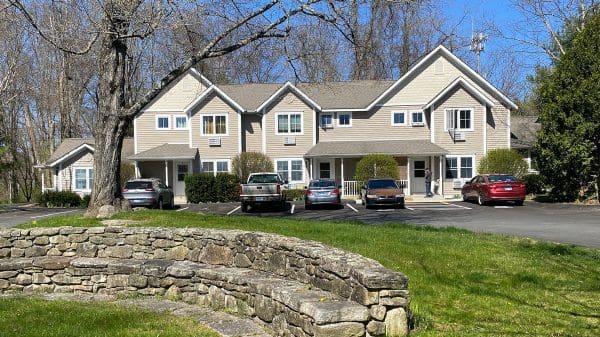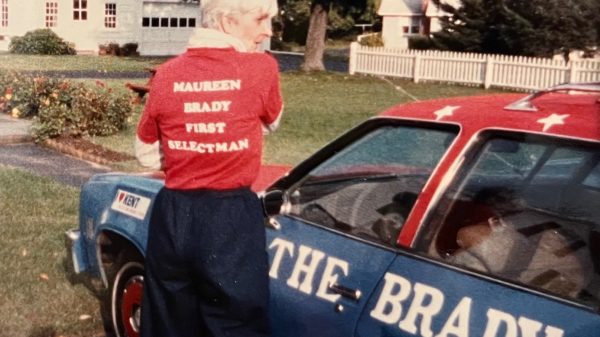KENT—Residents will get their say on whether the town should allow retail and medicinal cannabis outlets, through a town survey that is now available.

The survey can be found online on the town website. Hard copies are also available in the lobby of Town Hall and can be dropped off in the office of land use administrator Tai Kern. The survey ends March 31.
“We’re interested in knowing how residents feel about this issue and it’s another important step in doing our due diligence,” said Sarah Chase, who chairs the Planning and Zoning Commission’s cannabis subcommittee.
The survey asks residents such questions such as whether they support recreational and medical outlets along with the cultivation of marijuana. The survey also asks residents what concerns they may have regarding the location of such businesses and whether there should be buffer zones from schools, churches and residential areas.
Chase made her comments shortly after a hybrid public forum on the cannabis issue at Town Hall on Jan. 16. The forum included several national experts involved in helping states and municipalities determine the best approach to regulating the sale and cultivation of marijuana and hemp.
Currently Kent has a moratorium on any such application. The moratorium, which expires June 1, could be extended as the town continues to determine the direction it might take, whether it be a town ordinance or zoning regulation.
A cannabis sale opinion survey can be found online on the town website. Hard copies are also available in the lobby of Town Hall .
Subcommittee member Anne McAndrew asked the expert panelists, who attended by Zoom, whether there are restrictions on the number of cannabis facilities that could open in town based on population and square miles. Such limits are currently imposed on liquor stores.
“That’s not applicable to pot,” said Lila McKinley, legal program director for the state of Connecticut’s Department of Consumer Protection, which oversees and licenses the cannabis industry. There are also fewer regulations on hours of operation and days although those are restrictions a municipality can impose, she said.
But McKinley made clear that the oversight on cannabis operations is far greater than a liquor store, with state-mandated requirements for product storage, labeling, packaging and testing to make sure products are safe.
“There’s even advertising regulations to make sure it’s geared toward those 21 and over,” McKinley said.
Although cannabis products sometimes come with negative connotations, the data shows that such storefronts do not negatively affect local real estate and, in some cases, have helped to revitalize local business, said Eric Berlin, a cannabis law attorney.
Tyler Klimas of Leaf Street Strategies, said in his experience, retailers want to be above board and conform to state and local mandates.
“A lot of money is needed to open up a facility,” said Klimas, whose company helps clients shape policies and regulations that make sense. “So the retailer has a desire to do things the right way and be a good community partner. If you’re worried about nefarious things going on that will result from people not getting it (cannabis products) from a legal storefront, that’s what the data shows.”
The sale of cannabis products comes with an additional 3 percent tax that goes directly to a municipality. The revenue can only be used for specific purposes such as streetscape improvements, education programs and mental health or addiction programs, to name a few.
One thing is for certain the panelists reiterated: the issue of regulating cannabis for a municipality can be daunting, complicated and should be specific for each town’s needs. Several of the speakers gave kudos to the subcommittee for taking their time to determine what’s best for the Town of Kent.
Chase said the subcommittee will continue to review additional information that the state DCP will provide along with, of course, what residents have to say.


































